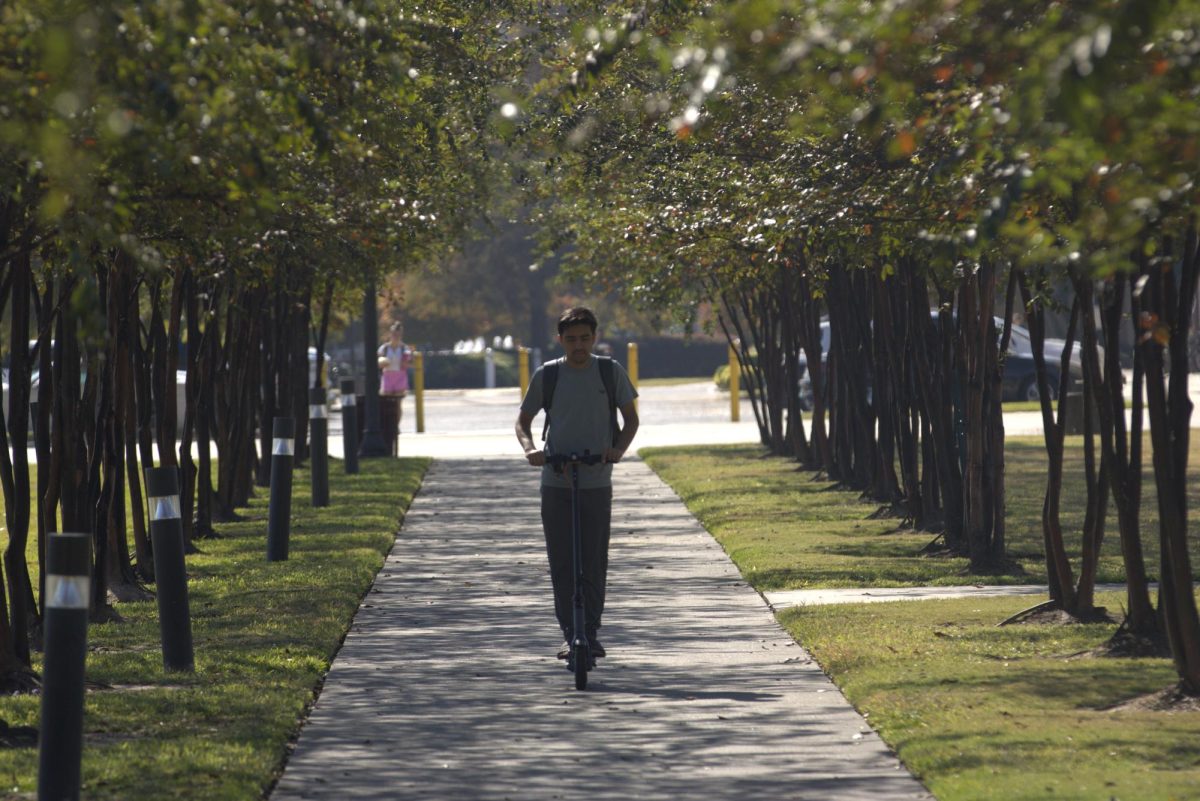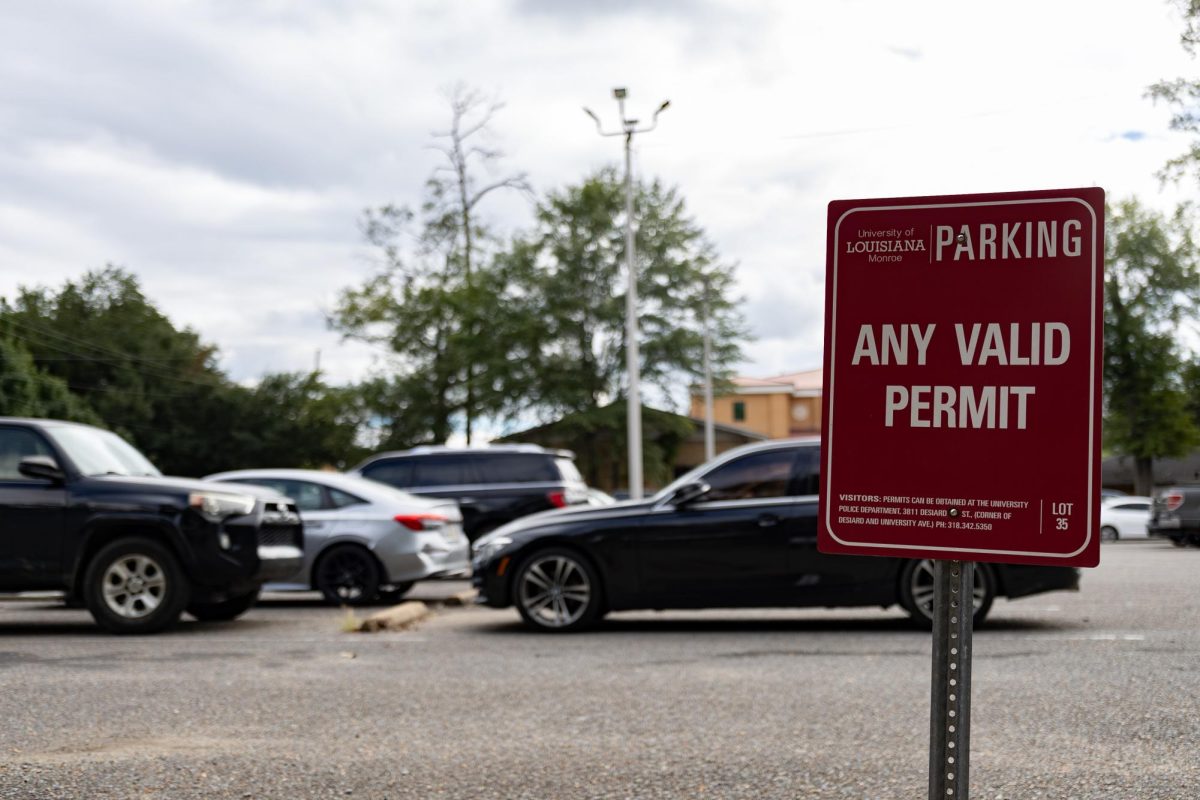The buzzing of your alarm starts your day. You wake-up, shower, get dressed, grab a bite and go to class. You spend the entire day in lectures, hanging out with friends and possibly work.
In those seemingly normal 24 hours, 24 football field sizes of Louisiana’s land sinks into the Gulf of Mexico every hour, according to the U.S. Geological Survey. That’s right, hours. Not days, not weeks or even years, but hours.
Louisiana is rich and full of history and culture—French, Spanish, Jamaican, Choctaw, African and many more. We have parishes instead of counties and the cuisine alone is worth the price of the blistering heat and humidity. This is my home.
As much as I say I want to leave this state, I love it unconditionally. Just like the Blue Cross and Blue Shield like to say, “Louisianans are a tenacious bunch.” We have to be. Our home is slipping underneath our feet as we speak, but all we can do is keep our heads up until we drown.
New Orleans is a major port city in the U.S. With over 360,000 residents, it is arguably the biggest too. And in 2010, 8.3 million tourists visited the bayou state, according to Travel Pulse.
Billions of dollars go into Louisiana’s tourism industry, but there will be nothing left to visit if Louisiana doesn’t act fast. Being aware of Louisiana’s doomed future of disappearing is the first step in prolonging it from happening.
Gulf coast erosion is where parts of the shoreline disappear into the ocean. It is caused naturally, but also contributed by humans. I really wish that definition included oil spills but I guess that falls into the ‘human’ category.
Before Hurricane Katrina and the Deepwater Horizon (BP) oil spill, it was us. We were laying down pipes, building bridges and roads, even changing the direction of the Mississippi River.
Before, the Mississippi River naturally changed course, flooding Louisiana’s wetlands, providing it with minerals and nutrients vital for wildlife. That river fed our coast. The Mississippi River is overdue for a course change and flooding, but it would flood many cities and towns in its path to the Gulf.
We industrialized- it was necessary. But along the way, nature was put on the back burner, and it hasn’t mattered until now.
The many pipelines that lay in bayous and wetlands are killing plant and animal life native to Louisiana. Many migratory birds are dying because of the lack of shrimp and insects they feed on when they reach the coast. Author Mike Tidwell came to Louisiana and wrote “Bayou Farewell” in 2003. One scene in the book brought tears to my eyes and anger to my heart.
A cemetery in Leeville has coffins dropping into the bayou, the corpses floating out into the gulf. The coast has decreased so much that what was once land is now an underwater gravesite. This is just one of the many cemeteries sinking into the Gulf, and one of the many tragedies Louisiana faces daily.
Coastal Protection and Restoration warns ,“If sustainability is not restored to the coastal ecosystem, land will continue to be lost at a rapid rate, and critical infrastructure will be damaged or destroyed.”
When Hurricane Katrina made landfall in 2005, the coast took a huge blow. And so did the wildlife. And so did the people. Everything and everyone in the Nation suffered, not just Louisiana.
I know as a society, we basically live off oil. Drilling will never stop. Dropping Christmas trees into Bayou Sauvage doesn’t solve the problem either. Conservation and restoration is vital for our planet.
It is looking more like when, not if, Louisiana washes away into the gulf. “Nationally, over the next 60 years, one out of every four homes within 500 feet of the shoreline will be lost to erosion, ” according to Coastal Protection and Restoration.
Those homes belong to families who have spent their lives in the gulf fishing, crabbing and shrimping. It’s in their blood- it’s all they know and it’s who they are.
Whether you are from Louisiana, another state or a country overseas, you are a Warhawk. You have walked along Bayou DeSiard and immersed yourself into Louisiana’s culture. I don’t expect you to donate money to Louisiana’s coastal conservation. I don’t expect you to even care. I just want you to be aware of this tragedy and to cherish this great state while it’s still here. I hope you are.





student • Apr 29, 2013 at 6:00 pm
http://www.nola.com/environment/index.ssf/2011/06/louisiana_is_losing_a_football.html
Blane • Apr 29, 2013 at 12:25 pm
*sigh*
Why must you say silly things?
Louisiana is 52,271 sq. miles
A football field is 160ft * 360ft = 57600 sq. ft
24 of those = 1382400 sq. ft. Daily, according to DeSoto.
In terms of square mileage, we divide by (5280 ft)^2 = 0.04959 sq. miles per hour..
Admittedly this may look like a paltry sum, but lets take that over a year, shall we?
So multiply by 24 hours for a day and 365 days for a year and you get about 434 sq. miles of Louisiana disappearing every year. Still sound small?
How about if we take that since global warming has been an issue. I’ll be generous and say 1930, when the idea started to really gain steam. Mind you, this is quite a bit after it was first officially reported. Anyways, so we take our little 434 sq. miles and multiply by 83 years to give us 36,053 square miles of Louisiana have apparently disappeared. Admittedly, DeSoto doesnt’ really give a timeline for when this happened, so I’m just going out on a limb and guessing it was when the water levels in the world started to rise.
Soooooooooooo, point being, stop talking about stuff you don’t know about.
Blane • Apr 29, 2013 at 12:29 pm
An error on my part – 1382400 sq ft HOURLY according to the article. Not daily.
Also, if anyone would care to say that global warming was an issue later, that is fine. The point is, even in a small amount of time, a substantial amount of the state should have disappeared.